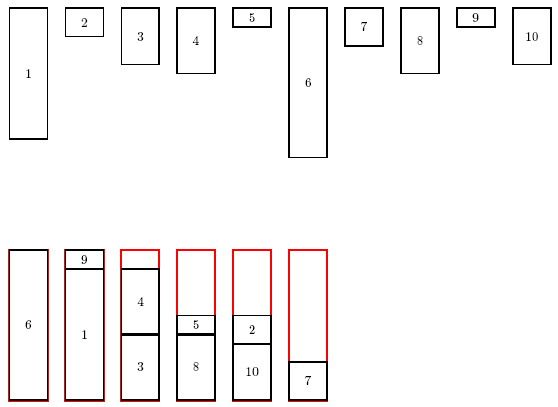- 详解mybatis的一二级缓存以及缓存失效原因
仰望天花板
缓存数据库mybatisjavamysql
数据库的大部分场景下是从磁盘读取,如果数据从内存进行读取,速度较比磁盘要快得多。但因为内存的容量有限,所以一般只会把使用和查询较多的数据缓存起来,以便快速反应,其他使用率不太多的继续存放在磁盘。mybatis分为一级缓存和二级缓存1.一级缓存一级缓存存放在SqlSqeeion上,默认开启1.1pojo@DatapublicclassRole{privateLongid;privateStringr
- WORD批量转换器MultiDoc Converter
uolian
工作word
WORD批量转换器MultiDocConverterhttps://www.52pojie.cn/thread-1318745-1-1.html可批量将doc、docx等文件格式转成doc、docx、pdf、rtf、txt、html、epub等格式。安装包下载地址:https://wws.lanzouj.com/irvVbiz0pkd最终下载文件打包地址(未作成单文件,不确定是否可以直接使用):h
- MyBatis系统学习(一)——项目结构及其含义
OEC小胖胖
MyBatismybatis学习web后端
1.MyBatis简介MyBatis是一款优秀的持久层框架,它通过SQL映射的方式实现Java对数据库操作的映射,既保留了SQL语句的灵活性,也简化了代码的编写。在一个MyBatis项目中,核心部分主要有:配置文件(mybatis-config.xml)映射文件(Mapper.xml)实体类(Entity/POJO)接口类(Mapper接口)MyBatis会话工厂(SqlSessionFactor
- SpringBoot项目
俺叫啥好嘞
spring系列springspringboot
SpringBoot项目大概分为四层:(1)DAO层:包括XxxMapper.java(数据库访问接口类),XxxMapper.xml(数据库链接实现);(这个命名,有人喜欢用Dao命名,有人喜欢用Mapper,看个人习惯了吧)(2)Bean层:也叫model层,模型层,entity层,实体层,就是数据库表的映射实体类,存放POJO对象;(3)Service层:也叫服务层,业务层,包括XxxSer
- 数据结构OJ作业——队列
nnbs
数据结构数据结构poj队列
POJ3984:http://poj.org/problem?id=3984迷宫,输出最短路径,bfs#include#include#include#includeusingnamespacestd;intmaze[5][5];pairpath[5][5];queue>q;intdx[]={1,-1,0,0};intdy[]={0,0,1,-1};voidbfs(intx,inty){q.pus
- c语言练习:POJ 1005 我想我需要一艘船屋(I Think I Need a Houseboat)
七月初七淮水竹亭~
C语言入门c语言
题目相关信息描述弗雷德·马珀(FredMapper)正在考虑在路易斯安那州购买一些土地来建造他的房子。在调查这片土地的过程中,他了解到,由于密西西比河造成的侵蚀,路易斯安那州实际上每年都在缩小50平方英里。由于弗雷德希望一辈子都住在这所房子里,他需要知道他的土地是否会因侵蚀而消失。在做了更多的研究之后,弗雷德了解到正在失去的土地形成了一个半圆形。这个半圆是以(0,0)为中心的圆的一部分,将圆平分的
- java开发中pojo、model和entity的区别及DTO与VO
leighy
javaspringbootmvc
一、pojo(PlainOrdinaryJavaObject无规则简单Java对象)简单java对象简单的javabean的对象,对应数据库某一张表,表的字段与pojo类的属性都要一一对应?(查阅发现没有具体对pojo描述,有的说是作为业务协作类不需要一一对应)但在实际开发中较少以pojo来对包命名。二、entity(实体类)数据表对应到实体类的映射则类属性与数据库表字段一一对应在实际开发中较多以
- SpringData JPA之Respository接口的使用
OVA_Won
SpringDatamysqljavaspring
SpringDataJPA之Respository接口的使用Respository:最顶层的接口也是标志接口,目的是为了统一所有Repository的类型,且能让组件扫描的时候自动识别。准备工作导入JAR包:别忘了导入Junit测试包,否则后面没法单元测试编写Spring和数据库配置文件applicationContext.xml文件com.OVA.pojojdbc.propertiesjdbc.
- POJ 1062 : 昂贵的聘礼 - 最短路Dijkstra+枚举(难)
bookybooky
图论最短路Dijsktrapojzoj图论
dijkstra处理权值非负情形,最近才开始看最短路。题目大意:(中文题容易理解)大致就是说,最终要得到酋长的许诺,每件物品可能有其他物品(1件)能让此物品价格优惠,你可通过交易获得物品从而以最少金钱达到酋长许诺。交易受到“等级限制”。其中的等级限制处理需要一定的技巧,细节一定要处理好!输入:(单Case输入)第一行两个整数M,N(1>30)-1足够,邻接矩阵用int也足够,并不像DISCUSS中
- 【Mybatis】Web中的数据库操作
科马
java数据库mybatisservletsql
Mybatis工作机制1.加载配置文件:2.创建SqlSessionFactory:3.获取SqlSession:4.获取Mapper接口:5.执行SQL语句:6.SQL语句解析和执行:7.结果映射:8.事务管理:9.关闭SqlSession:10.返回结果:与JDBC对比三个显著特点代码示例1.配置MyBatis2.创建数据库表3.创建POJO类4.编写Mapper接口5.编写SQL映射文件6.
- spring揭秘-概念以BeanFactory介绍
liangxifeng833
本质:Spring框架为POJO提供的各种服务共同组成了Spring的生命之树Paste_Image.pngspring框架为基础,有很多家庭成员,比如(SpringWebFlow,SpringWebServices,SpringSecurity,SpringBatch等等),这些家族成员全部以ApacheLisenceVersion2.0协议发布,共同组成了SpringProjects组合,因为
- SpringBoot项目中使用SpringData-JPA持久化数据
火星刻苦的杏仁
springbootjavamybatis
目录一、什么是JPA二、SpringData-JPA与MybatisPuls的区别三、项目中使用JPAJPA常用注解JPA进阶使用技巧一、什么是JPAJPA是JavaPersistenceAPI的简称,中文名Java持久层API,其设计目标主要是为了简化现有的持久化开发工作和整合ORM技术。简单地说,JPA就是为POJO(PlainOrdinaryJavaObject)提供持久化的标准规范,即将J
- 算法入门篇(八) 之 查找算法
战族狼魂
算法哈希算法
目录一、哈希表哈希函数哈希函数的应用常见的哈希函数线性探测、二次探测、链地址1.线性探测(LinearProbing)2.二次探测(QuadraticProbing)3.链地址法(Chaining)4.总结POJ3349、POJ1840、POJ2002POJ3349-AncientCipherPOJ1840-MaximumNumberPOJ2002-TournamentScheduling二、字符
- Spring AI
java_heartLake
人工智能人工智能springjava
本文介绍Spring的一级项目SpringAI简介:SpringAI是一个用于AI工程的应用程序框架。其目标是将Spring生态系统的设计原则(如可移植性和模块化设计)应用于AI领域,并推动将POJO(PlainOldJavaObjects,简单老式Java对象)作为应用程序的构建块引入到AI领域。主要特性:支持跨AI提供商的便携式API,用于聊天、文本到图像和嵌入模型。同时支持同步和流API选项
- 【iOS安全】iOS安装Alook浏览器
Jouzzy
iOS安全iOS开发ios浏览器
下载Alook的ipa下载地址参考:https://www.52pojie.cn/thread-1725470-1-1.html其中出现的下载链接:https://wwes.lanzouf.com/iyGQ00icergd下载ipa后使用爱思助手安装
- MyBatis注解开发详解
hoypte
mybatis
MyBatis注解开发详解一、前言MyBatis是一个优秀的持久层框架,它支持定制化SQL、存储过程以及高级映射。MyBatis免除了几乎所有的JDBC代码和手动设置参数以及获取结果集。MyBatis可以使用简单的XML或注解来配置和映射原始类型、接口和JavaPOJO(PlainOldJavaObjects,普通的Java对象)为数据库中的记录。在MyBatis中,注解提供了一种更加简洁和直观的
- @Import注解作用
y我见青山多妩媚
java开发语言
@Import注解作用理解springboot自动装配时,发现@SpringBootApplication注解下的@EnableAutoConfiguration注解头上有一个@Import注解。关于这个注解的作用,上网查找后发现理解的不是很明白,于是写了下面的Demo去理解。两个pojo类:publicclassPerson{}publicclassStudent{}测试类@Configurat
- 【spring boot结合rabbit mq 到点执行,可精确到秒】
ljh_learn_from_base
javaspringbootspringbootjava后端java-rabbitmq
【springboot结合rabbitmq到点执行,可精确到秒】创建队列枚举创建自定义的队列消息pojo创建队列和延迟队列发送mq消息接收mq消息DateTimeUtil测试注意点创建队列枚举publicenumQueueEnum{/***各种异步消息频道*/TEST(1,"test","队列频道"),DELAY_TEST(2,"delay_test","延迟延迟频道"),;privateInte
- Eclipse中Run As On Server和Run As Java Application
CAE虚拟与现实
JavaIDE开发环境javaeclipseide
一、名词释义runjavaapplication(作为Java应用程序运行)是运行javamain方法。runonserver是启动一个web应用服务器。二、两者的区别Eclipse中可以创建javaproject也可以创建javawebpoject。javaproject是可以直接在命令行运行,或者直接在Eclipse中运行此时运行是jvm直接调用了main方法。Eclipse中创建的javaw
- 不同编程网站应当注意的点
见合8
比赛总结c++c语言
文章目录引入:洛谷:POJ:C语言:C++:CF:个人建议:补充:引入:小伙伴们有没有遇到过这种情况:到一个新的网站去编程,思路、算法完全正确,提交上去却是WrongAnswer,RuntimeError,ComplieError,TimeLimitExceed。这里,我总结了以下几个网站的注意点:洛谷:link提交时右上角有一个选项为O2优化。这并不可以随便选。可能有些暴力程序开了O2就过了,但
- 阿里java开发手册泰山版_总结
林坰
Javajava数据库mysql
编程规约常量定义不允许任何预先未定义的常量出现在代码中。不要使用一个常量类维护所有的常量,要按常量功能进行归类,分开维护。OOP规约所有的POJO类属性必须使用包装数据类型。RPC方法的返回值和参数必须使用包装数据类型。POJO类是最简单最普通的JAVA对象,内在含义是有一些private的参数作为对象的属性,然后针对每一个参数定义get和set方法访问的接口。【没有从任何类继承、也没有实现任何接
- 【转载】ACM入门 .
dongfan1861
人工智能phpc/c++
初期:一.基本算法:(1)枚举.(poj1753,poj2965)(2)贪心(poj1328,poj2109,poj2586)(3)递归和分治法.(4)递推.(5)构造法.(poj3295)(6)模拟法.(poj1068,poj2632,poj1573,poj2993,poj2996)二.图算法:(1)图的深度优先遍历和广度优先遍历.(2)最短路径算法(dijkstra,bellman-ford,
- 如何下载52pojie、CSDN、简书、Myitmx、博客园的文章?(最新教程)
星梦客
问题记录程序人生
使用的油猴插件,具体怎么安装问一下度娘。我用的火狐,点点点就行了,省事先安装油猴拓展,启用一下Tampermonkey–下载Firefox扩展(zh-CN)在安装插件SaveToPDF脚本安装后,浏览CSDN文章时,博主信息下方会出现“收藏”按钮,52pojie页面,"收藏"按钮在发贴回复旁边,简书页面,左侧悬浮按钮下方,Myitmx页面,顶部最右侧,博客园页面,顶部管理菜单旁边点击收藏会弹出打印
- SpringBoot之基本概念
Daylight629
SpringBootjavaspringspringbootmaventomcat
SpringBoot概念一、什么是SpringSpring是一个开源框架,2003年兴起的一个轻量级的Java开发框架,作者:RodJohnson。Spring是为了解决企业级应用开发的复杂性而创建的,简化开发。可以看我之前的文章关于spring的介绍与使用二、Spring是如何简化Java开发的为了降低Java开发的复杂性,Spring采用了以下4种关键策略:1、基于POJO的轻量级和最小侵入性
- 使用IDEA构建微服务Maven聚合工程保姆级教程
程序喵锅
经验分享intellij-idea微服务maven经验分享学习
本次喵子给大家分享一个通用的聚合工程搭建教程,细致入微、充满人文关怀的保姆级教程,基本上搭建一次后续即可作为通用模版,应用到其它项目里。一、简单了解微服务二、Maven构建聚合工程1.环境说明2.开始构建2.1.创建空的父工程2.2.创建common子工程2.3.创建pojo子工程2.4.创建mapper子工程2.5.创建service子工程2.6.创建apis子工程2.7.工程安装三、总结一、简
- java中实体pojo对于布尔类型属性命名尽量别以is开头,否则 fastjson可能会导致属性读取不到
阿文弟
java开发语言
假如我们有一个场景,就是需要将一个对象以字符串的形式,也就是jsonString存到一个地方,比如mysql,或者redis的String结构。现在有一个实体,我们自己创建的,叫做CusPojo.java有两个属性是布尔类型的,一个属性是有is开头,一个是没有is开头的,我们就可以做个对比。现在我导入fastjson依赖,创建一个CusPojo对象,然后序列化为jsonString,我们打印结果如
- springboot整合RabbitMQ
水宝的滚动歌词
RabbitMQspringbootspringbootrabbitmq
1.Spring-AMQP概念什么是Spring-AMQPSpring框架的AMQP消息解决方案,提供模板化的发送和接收消息的抽象层,提供基于消息驱动的POJO的消息监听等提供不依赖于任何特定的AMQP代理实现或客户端库通用的抽象,最终用户代码将很容易实现更易替换、添加和删除AMQP,因为它可以只针对抽象层来开发总之就是提高我们的框架整合消息队列的效率,springboot为更方便开发Rabbit
- Spring Boot 笔记 016 创建接口_删除文章分类
机器人迈克猫
SpringBootspringboot笔记后端
1.1.1Controllerpackagecom.geji.controller;importcom.geji.pojo.Category;importcom.geji.pojo.Result;importcom.geji.service.CategoryService;importorg.springframework.beans.factory.annotation.Autowired;im
- SpringMVC 的参数绑定之list集合、Map
lvpflv
SpringMVClistmvcspring
标签中name属性的值就是pojo类的属性名参数绑定4list[对象]教师编号:教师姓名:map教师编号:教师姓名:
- VO、DTO、DO、BO、PO
知行合一。。。
项目--架构mybatis
提示:文章写完后,目录可以自动生成,如何生成可参考右边的帮助文档文章目录VO、DTO、DO、BO1.概念阿里Java开发手册分层领域模型:2.VO和DTO使用场景以下是一个使用VO和DTO的典型案例:3.BO和DTO的区别案例VO、DTO、DO、BOPOJO的定义是无规则简单的对象,在日常的代码分层中pojo会被分为VO、BO、PO、DTO。通过各层POJO的使用,有助于提高代码的可读性和可维护性
- 多线程编程之卫生间
周凡杨
java并发卫生间线程厕所
如大家所知,火车上车厢的卫生间很小,每次只能容纳一个人,一个车厢只有一个卫生间,这个卫生间会被多个人同时使用,在实际使用时,当一个人进入卫生间时则会把卫生间锁上,等出来时打开门,下一个人进去把门锁上,如果有一个人在卫生间内部则别人的人发现门是锁的则只能在外面等待。问题分析:首先问题中有两个实体,一个是人,一个是厕所,所以设计程序时就可以设计两个类。人是多数的,厕所只有一个(暂且模拟的是一个车厢)。
- How to Install GUI to Centos Minimal
sunjing
linuxInstallDesktopGUI
http://www.namhuy.net/475/how-to-install-gui-to-centos-minimal.html
I have centos 6.3 minimal running as web server. I’m looking to install gui to my server to vnc to my server. You can insta
- Shell 函数
daizj
shell函数
Shell 函数
linux shell 可以用户定义函数,然后在shell脚本中可以随便调用。
shell中函数的定义格式如下:
[function] funname [()]{
action;
[return int;]
}
说明:
1、可以带function fun() 定义,也可以直接fun() 定义,不带任何参数。
2、参数返回
- Linux服务器新手操作之一
周凡杨
Linux 简单 操作
1.whoami
当一个用户登录Linux系统之后,也许他想知道自己是发哪个用户登录的。
此时可以使用whoami命令。
[ecuser@HA5-DZ05 ~]$ whoami
e
- 浅谈Socket通信(一)
朱辉辉33
socket
在java中ServerSocket用于服务器端,用来监听端口。通过服务器监听,客户端发送请求,双方建立链接后才能通信。当服务器和客户端建立链接后,两边都会产生一个Socket实例,我们可以通过操作Socket来建立通信。
首先我建立一个ServerSocket对象。当然要导入java.net.ServerSocket包
ServerSock
- 关于框架的简单认识
西蜀石兰
框架
入职两个月多,依然是一个不会写代码的小白,每天的工作就是看代码,写wiki。
前端接触CSS、HTML、JS等语言,一直在用的CS模型,自然免不了数据库的链接及使用,真心涉及框架,项目中用到的BootStrap算一个吧,哦,JQuery只能算半个框架吧,我更觉得它是另外一种语言。
后台一直是纯Java代码,涉及的框架是Quzrtz和log4j。
都说学前端的要知道三大框架,目前node.
- You have an error in your SQL syntax; check the manual that corresponds to your
林鹤霄
You have an error in your SQL syntax; check the manual that corresponds to your MySQL server version for the right syntax to use near 'option,changed_ids ) values('0ac91f167f754c8cbac00e9e3dc372
- MySQL5.6的my.ini配置
aigo
mysql
注意:以下配置的服务器硬件是:8核16G内存
[client]
port=3306
[mysql]
default-character-set=utf8
[mysqld]
port=3306
basedir=D:/mysql-5.6.21-win
- mysql 全文模糊查找 便捷解决方案
alxw4616
mysql
mysql 全文模糊查找 便捷解决方案
2013/6/14 by 半仙
[email protected]
目的: 项目需求实现模糊查找.
原则: 查询不能超过 1秒.
问题: 目标表中有超过1千万条记录. 使用like '%str%' 进行模糊查询无法达到性能需求.
解决方案: 使用mysql全文索引.
1.全文索引 : MySQL支持全文索引和搜索功能。MySQL中的全文索
- 自定义数据结构 链表(单项 ,双向,环形)
百合不是茶
单项链表双向链表
链表与动态数组的实现方式差不多, 数组适合快速删除某个元素 链表则可以快速的保存数组并且可以是不连续的
单项链表;数据从第一个指向最后一个
实现代码:
//定义动态链表
clas
- threadLocal实例
bijian1013
javathreadjava多线程threadLocal
实例1:
package com.bijian.thread;
public class MyThread extends Thread {
private static ThreadLocal tl = new ThreadLocal() {
protected synchronized Object initialValue() {
return new Inte
- activemq安全设置—设置admin的用户名和密码
bijian1013
javaactivemq
ActiveMQ使用的是jetty服务器, 打开conf/jetty.xml文件,找到
<bean id="adminSecurityConstraint" class="org.eclipse.jetty.util.security.Constraint">
<p
- 【Java范型一】Java范型详解之范型集合和自定义范型类
bit1129
java
本文详细介绍Java的范型,写一篇关于范型的博客原因有两个,前几天要写个范型方法(返回值根据传入的类型而定),竟然想了半天,最后还是从网上找了个范型方法的写法;再者,前一段时间在看Gson, Gson这个JSON包的精华就在于对范型的优雅简单的处理,看它的源代码就比较迷糊,只其然不知其所以然。所以,还是花点时间系统的整理总结下范型吧。
范型内容
范型集合类
范型类
- 【HBase十二】HFile存储的是一个列族的数据
bit1129
hbase
在HBase中,每个HFile存储的是一个表中一个列族的数据,也就是说,当一个表中有多个列簇时,针对每个列簇插入数据,最后产生的数据是多个HFile,每个对应一个列族,通过如下操作验证
1. 建立一个有两个列族的表
create 'members','colfam1','colfam2'
2. 在members表中的colfam1中插入50*5
- Nginx 官方一个配置实例
ronin47
nginx 配置实例
user www www;
worker_processes 5;
error_log logs/error.log;
pid logs/nginx.pid;
worker_rlimit_nofile 8192;
events {
worker_connections 4096;}
http {
include conf/mim
- java-15.输入一颗二元查找树,将该树转换为它的镜像, 即在转换后的二元查找树中,左子树的结点都大于右子树的结点。 用递归和循环
bylijinnan
java
//use recursion
public static void mirrorHelp1(Node node){
if(node==null)return;
swapChild(node);
mirrorHelp1(node.getLeft());
mirrorHelp1(node.getRight());
}
//use no recursion bu
- 返回null还是empty
bylijinnan
javaapachespring编程
第一个问题,函数是应当返回null还是长度为0的数组(或集合)?
第二个问题,函数输入参数不当时,是异常还是返回null?
先看第一个问题
有两个约定我觉得应当遵守:
1.返回零长度的数组或集合而不是null(详见《Effective Java》)
理由就是,如果返回empty,就可以少了很多not-null判断:
List<Person> list
- [科技与项目]工作流厂商的战略机遇期
comsci
工作流
在新的战略平衡形成之前,这里有一个短暂的战略机遇期,只有大概最短6年,最长14年的时间,这段时间就好像我们森林里面的小动物,在秋天中,必须抓紧一切时间存储坚果一样,否则无法熬过漫长的冬季。。。。
在微软,甲骨文,谷歌,IBM,SONY
- 过度设计-举例
cuityang
过度设计
过度设计,需要更多设计时间和测试成本,如无必要,还是尽量简洁一些好。
未来的事情,比如 访问量,比如数据库的容量,比如是否需要改成分布式 都是无法预料的
再举一个例子,对闰年的判断逻辑:
1、 if($Year%4==0) return True; else return Fasle;
2、if ( ($Year%4==0 &am
- java进阶,《Java性能优化权威指南》试读
darkblue086
java性能优化
记得当年随意读了微软出版社的.NET 2.0应用程序调试,才发现调试器如此强大,应用程序开发调试其实真的简单了很多,不仅仅是因为里面介绍了很多调试器工具的使用,更是因为里面寻找问题并重现问题的思想让我震撼,时隔多年,Java已经如日中天,成为许多大型企业应用的首选,而今天,这本《Java性能优化权威指南》让我再次找到了这种感觉,从不经意的开发过程让我刮目相看,原来性能调优不是简单地看看热点在哪里,
- 网络学习笔记初识OSI七层模型与TCP协议
dcj3sjt126com
学习笔记
协议:在计算机网络中通信各方面所达成的、共同遵守和执行的一系列约定 计算机网络的体系结构:计算机网络的层次结构和各层协议的集合。 两类服务: 面向连接的服务通信双方在通信之前先建立某种状态,并在通信过程中维持这种状态的变化,同时为服务对象预先分配一定的资源。这种服务叫做面向连接的服务。 面向无连接的服务通信双方在通信前后不建立和维持状态,不为服务对象
- mac中用命令行运行mysql
dcj3sjt126com
mysqllinuxmac
参考这篇博客:http://www.cnblogs.com/macro-cheng/archive/2011/10/25/mysql-001.html 感觉workbench不好用(有点先入为主了)。
1,安装mysql
在mysql的官方网站下载 mysql 5.5.23 http://www.mysql.com/downloads/mysql/,根据我的机器的配置情况选择了64
- MongDB查询(1)——基本查询[五]
eksliang
mongodbmongodb 查询mongodb find
MongDB查询
转载请出自出处:http://eksliang.iteye.com/blog/2174452 一、find简介
MongoDB中使用find来进行查询。
API:如下
function ( query , fields , limit , skip, batchSize, options ){.....}
参数含义:
query:查询参数
fie
- base64,加密解密 经融加密,对接
y806839048
经融加密对接
String data0 = new String(Base64.encode(bo.getPaymentResult().getBytes(("GBK"))));
String data1 = new String(Base64.decode(data0.toCharArray()),"GBK");
// 注意编码格式,注意用于加密,解密的要是同
- JavaWeb之JSP概述
ihuning
javaweb
什么是JSP?为什么使用JSP?
JSP表示Java Server Page,即嵌有Java代码的HTML页面。使用JSP是因为在HTML中嵌入Java代码比在Java代码中拼接字符串更容易、更方便和更高效。
JSP起源
在很多动态网页中,绝大部分内容都是固定不变的,只有局部内容需要动态产生和改变。
如果使用Servl
- apple watch 指南
啸笑天
apple
1. 文档
WatchKit Programming Guide(中译在线版 By @CocoaChina) 译文 译者 原文 概览 - 开始为 Apple Watch 进行开发 @星夜暮晨 Overview - Developing for Apple Watch 概览 - 配置 Xcode 项目 - Overview - Configuring Yo
- java经典的基础题目
macroli
java编程
1.列举出 10个JAVA语言的优势 a:免费,开源,跨平台(平台独立性),简单易用,功能完善,面向对象,健壮性,多线程,结构中立,企业应用的成熟平台, 无线应用 2.列举出JAVA中10个面向对象编程的术语 a:包,类,接口,对象,属性,方法,构造器,继承,封装,多态,抽象,范型 3.列举出JAVA中6个比较常用的包 Java.lang;java.util;java.io;java.sql;ja
- 你所不知道神奇的js replace正则表达式
qiaolevip
每天进步一点点学习永无止境纵观千象regex
var v = 'C9CFBAA3CAD0';
console.log(v);
var arr = v.split('');
for (var i = 0; i < arr.length; i ++) {
if (i % 2 == 0) arr[i] = '%' + arr[i];
}
console.log(arr.join(''));
console.log(v.r
- [一起学Hive]之十五-分析Hive表和分区的统计信息(Statistics)
superlxw1234
hivehive分析表hive统计信息hive Statistics
关键字:Hive统计信息、分析Hive表、Hive Statistics
类似于Oracle的分析表,Hive中也提供了分析表和分区的功能,通过自动和手动分析Hive表,将Hive表的一些统计信息存储到元数据中。
表和分区的统计信息主要包括:行数、文件数、原始数据大小、所占存储大小、最后一次操作时间等;
14.1 新表的统计信息
对于一个新创建
- Spring Boot 1.2.5 发布
wiselyman
spring boot
Spring Boot 1.2.5已在7月2日发布,现在可以从spring的maven库和maven中心库下载。
这个版本是一个维护的发布版,主要是一些修复以及将Spring的依赖提升至4.1.7(包含重要的安全修复)。
官方建议所有的Spring Boot用户升级这个版本。
项目首页 | 源
